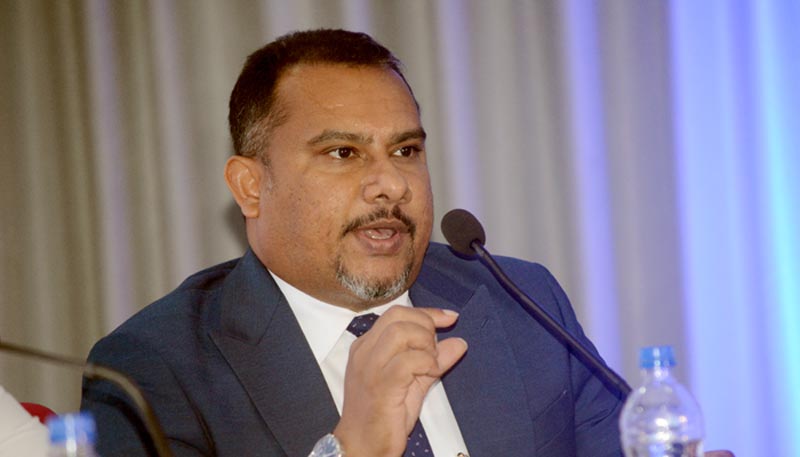Thursday Feb 19, 2026
Thursday Feb 19, 2026
Monday, 24 June 2024 03:01 - - {{hitsCtrl.values.hits}}

Industries Ministry Sector Advisory Committee on Automotive Industry Chairman and SLACMA President Dimantha Jayawardena
By Darshana Abayasingha
The Sri Lanka Automobile Assemblers Association (SLAAA) last week dismissed reports the industry is receiving unwarranted tax breaks that pave the way for corruption, and stated the Government approved concessions are solely to promote investments into the industry.
Speaking to the Daily FT, Industries Ministry Sector Advisory Committee on Automotive Industry Chairman and Sri Lanka Automotive Component Manufacturers Association (SLACMA) President Dimantha Jayawardena said Sri Lanka exports up to $ 800 million worth of vehicles components annually. He added the primary objective of the tax structure is to promote local manufacturers of components and have them certified by global brands. He said this would also allow Sri Lankan Small and Medium Manufacturers to enter the global supply chain.
At present, there are 30 companies registered to assemble vehicles in Sri Lanka, and over 16 have started operations. The registered organisations include global brands such as TATA, Mahindra, Hyundai, DFSK and Proton.
“There were some reports published that there was a duty scam concerning vehicle assembly and components. The facility is simply to encourage the industry. The concession is granted through a Cabinet appointed committee that includes the Treasury, Customs, the Import Controller, the German Tech Institute and the Moratuwa University and is headed by the Ministry of Industries. So, there is a lot of compliance and a special Cabinet Committee to study every value addition before any concessions are granted,” Jayawardena said.
He noted however that these regulations only came into being in 2021, despite the local vehicle assembly industry dating back as far as 1980. With the aim of regulating and promoting the industry, a Standard Operating Procedure was prepared in 2020, incorporating the opinions of experts in the field and in accordance with international standards. It received Cabinet approval in January 2021.
The main factors that led to the implementation of the standard operating procedure is the large amount of foreign exchange that goes out of the country for the import of vehicles and the need to ensure a minimum vehicle requirement for the country, following the suspension of vehicle imports due to the corona pandemic.
The calculation and collection of tax on vehicles assembled using components supplied by a foreign manufacturer as well as those manufactured locally, are based on the Sri Lanka Excise Special Provisions Act No. 13 of 1989, and its amending Acts.